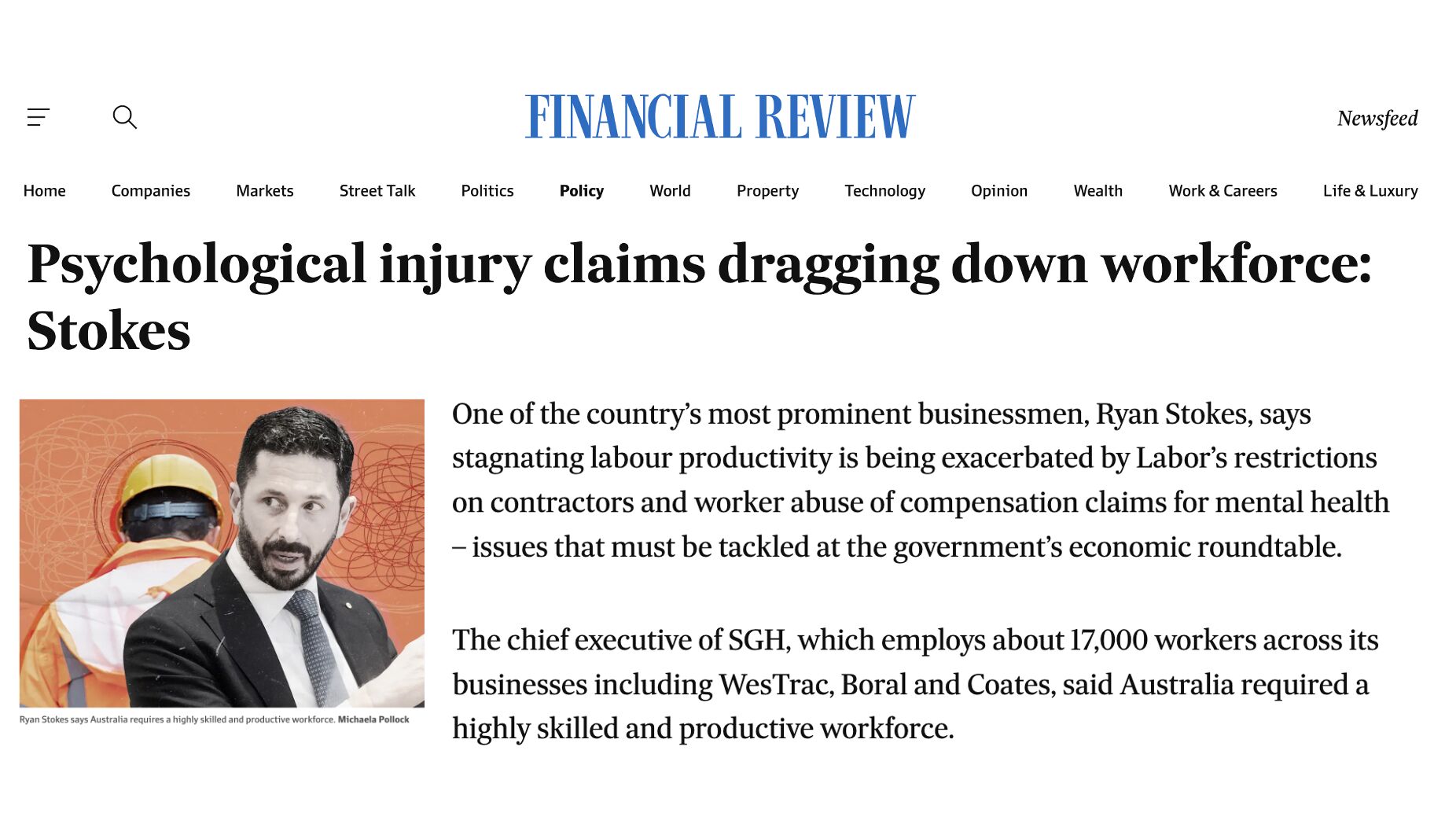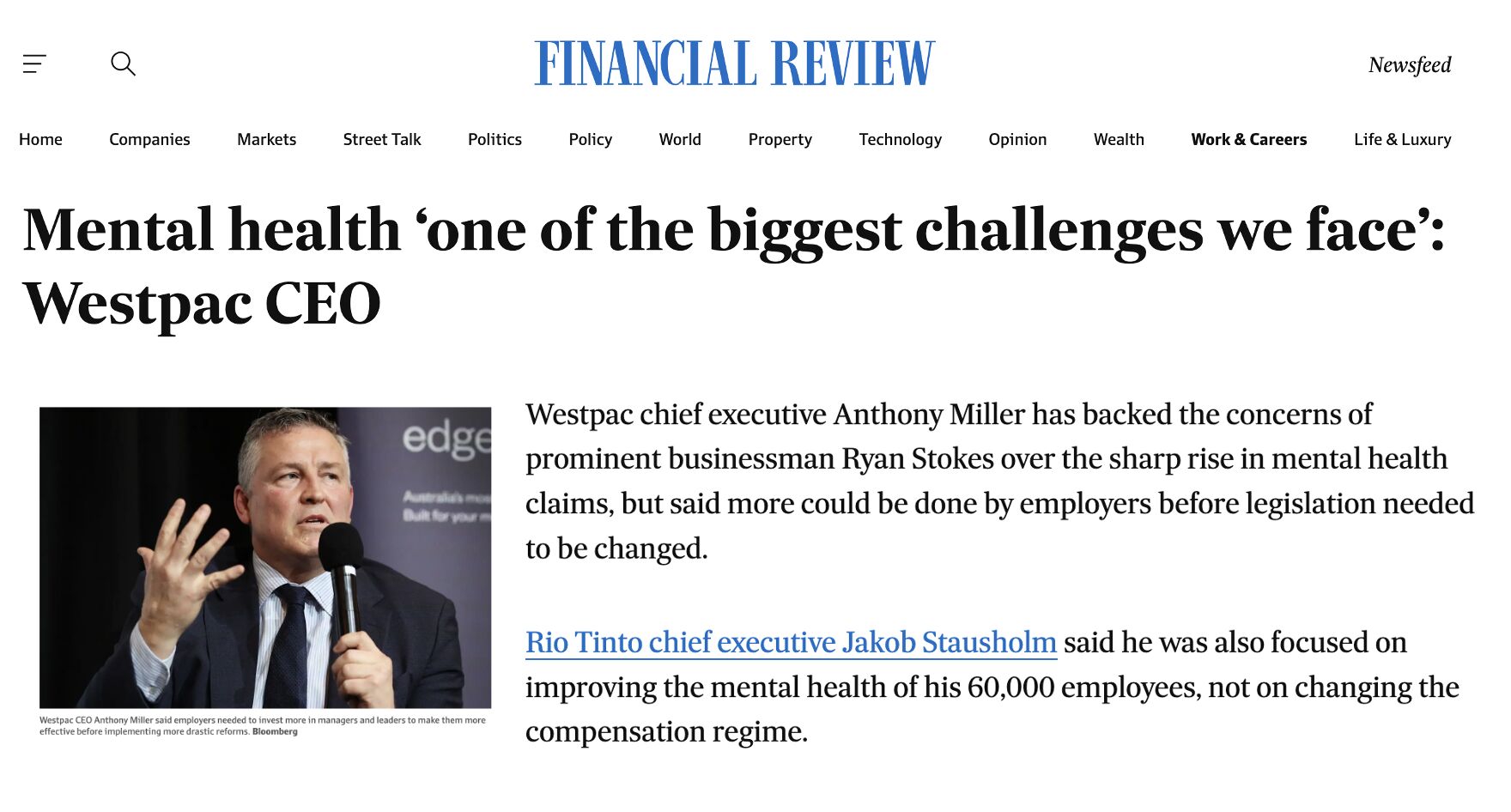.png)
A Victorian employer has been fined $100,000 for failing to manage psychosocial risks. At the same time, business leaders are raising concerns about rising mental health claims and challenges in managing performance.
This newsletter covers:
- $100K fine for inadequate psychosocial controls
- Business leader commentary on rising claims
- Practical guidance on managing risk during performance management
- What IS and is NOT a psychosocial hazard
Victorian employer fined $100k
A Victorian employer was recently fined $100,000 for failing to implement effective policies or training to manage inappropriate workplace behaviours, behaviour that posed a psychosocial risk to workers.
Read full case write-up (Pinsent Masons)
Business leaders warn of psychosocial claim risk
While regulators are rightly pushing for action to manage these risks, business leaders are simultaneously sounding alarm bells about rising psychological injury claims and the growing burden they place on operations.
“People get away with it and then tell their friends about it... Everyone in business thinks it’s a joke.”
— Gerry Harvey, as quoted in the AFR
“Psychology injury claims are dragging down the workforce.”
— AFR headline regarding Ryan Stokes, 28 July 2025

The facts
- Psychosocial injuries are projected to cost Australia $2.2B in 2024, up from $1.2B in 2019.
- Many businesses report feeling that performance management is now one of the riskiest activities they undertake.
- “Reasonable and practicable action” is the legal test, yet leaders say it remains subjective and unclear.
- Regulators say: It's not what you do, it's how you do it.
The key points of tension we see

Fair Work Commission
"It is reasonable management action for an employer to address unsatisfactory performance or conduct—if it’s done in a reasonable way."
Rachel King from Rachel King Human Risk Management
"While most employers want to manage underperformance fairly and safely, many feel exposed not because of poor intent but because the boundaries of “reasonable management action” are still somewhat subjective and therefore risky."

Safe performance management tips
- Set clear expectations: Explain what good performance looks like. Use specific, job-related criteria.
- Raise concerns early: Don’t wait. Address underperformance when it starts, not when it’s serious.
- Have a private, respectful conversation: Stick to facts. Don’t make it personal.
- Give the employee a chance to respond: Ask for their perspective and listen without judgment.
- Agree on next steps: Set a plan for improvement and timeframes. Offer support if needed.
- Document everything: Record what was said, agreed to, and any follow-ups
Understanding Psychosocial Hazards
Confusion about what IS and what is NOT a psychosocial hazard is contributing to uncertainty for both leaders and workers. We’ve put together a simple guide to help.
What is and what is not a psychosocial hazard education – View the guide
Feel free to share it with your teams or include in onboarding and leadership training.
We hope you found this helpful and as always, thank you for reading.
.png)
.png)
.png)